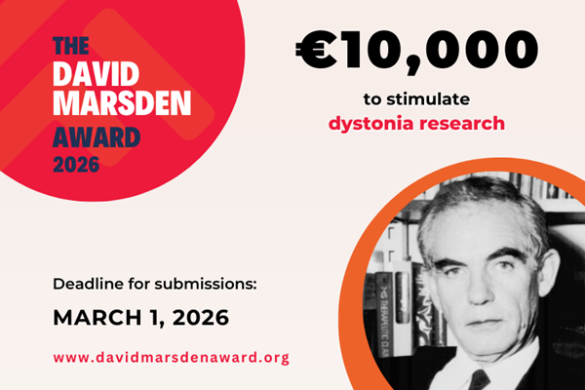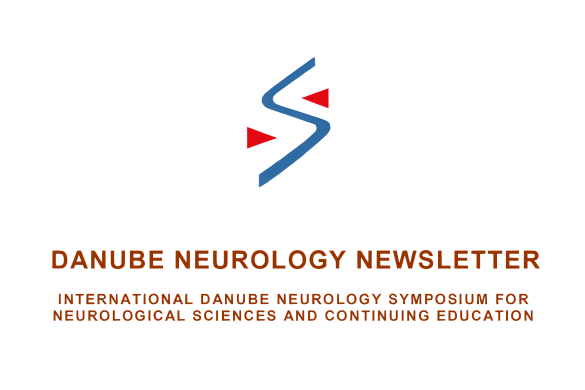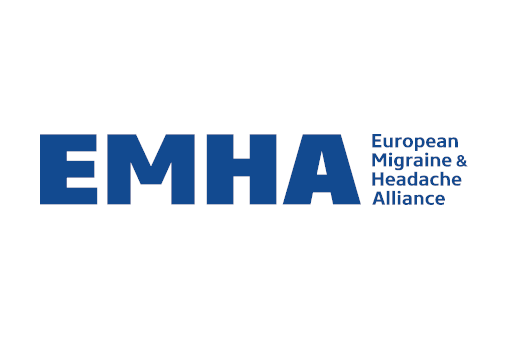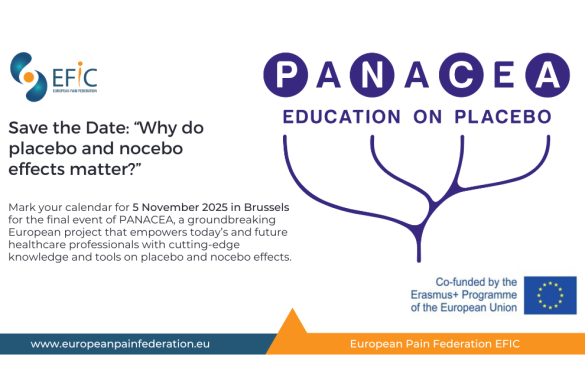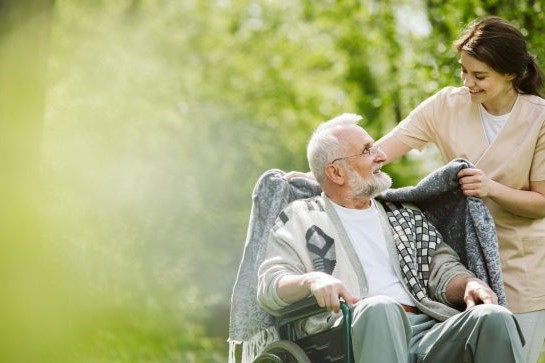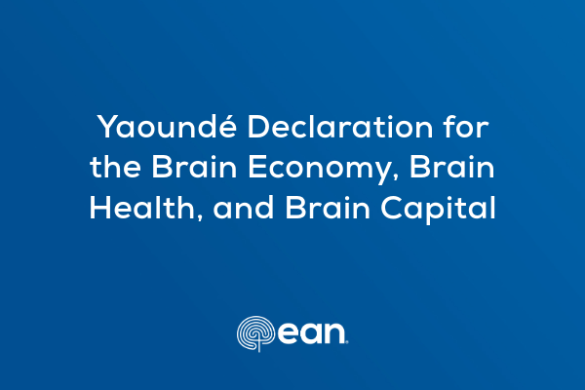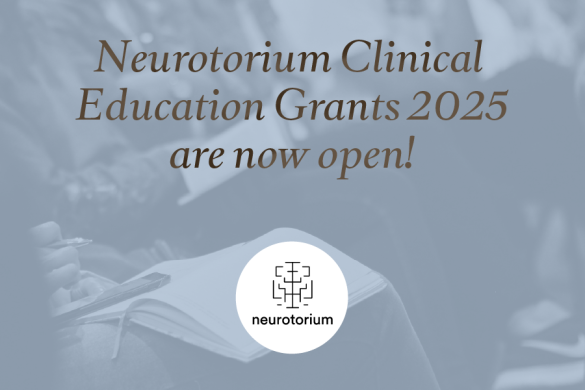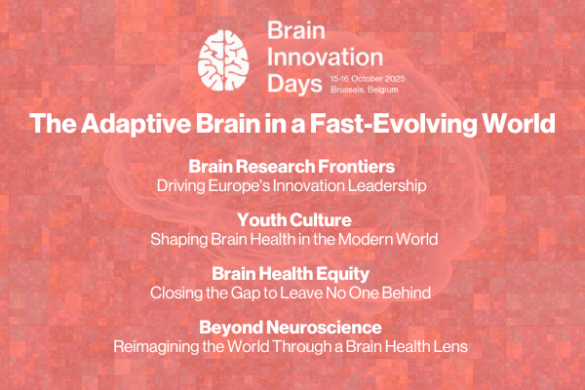by Alzheimer Europe
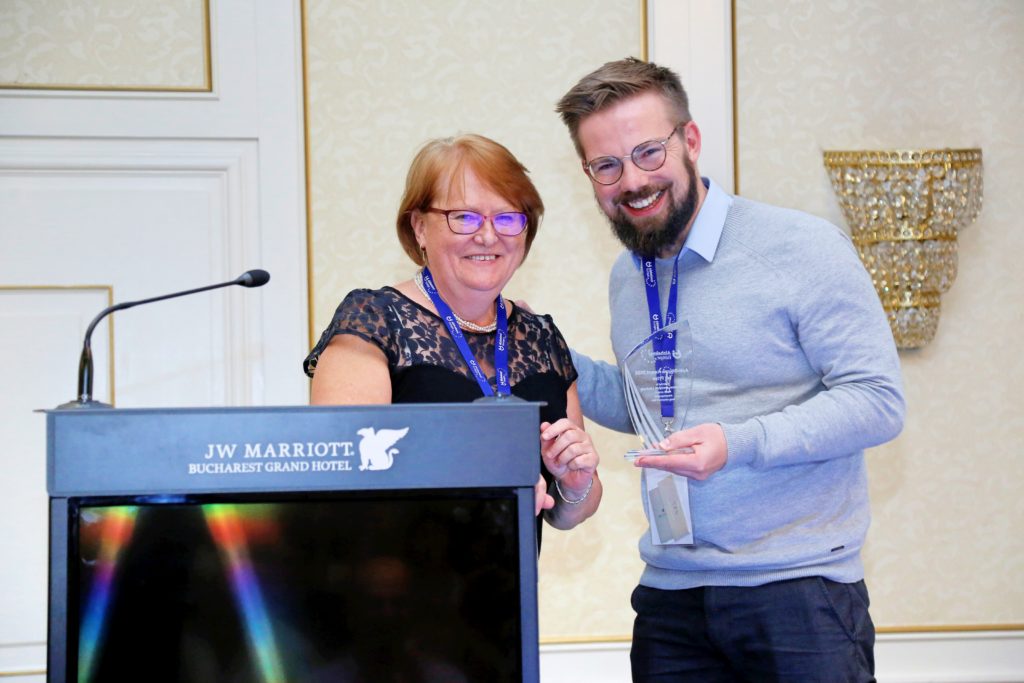
On 19 October 2022, at the closing ceremony of the 32nd Alzheimer Europe Conference (#32AEC), the Adoptieproject: Jong adopteert Oud (Adoption project, young adopts old) of the Alzheimer Centrum Limburg (Maastricht, Netherlands) was announced as the winner of Alzheimer Europe’s new Anti-Stigma Award. The award, together with a cash prize of €5,000 was presented by Iva Holmerová, the Treasurer of the Alzheimer Europe Foundation.
On 19 October 2022, at the closing ceremony of the 32nd Alzheimer Europe Conference (#32AEC), the Adoptieproject: Jong adopteert Oud (Adoption project, young adopts old) of the Alzheimer Centrum Limburg (Maastricht, Netherlands) was announced as the winner of Alzheimer Europe’s new Anti-Stigma Award. The award, together with a cash prize of €5,000 was presented by Iva Holmerová, the Treasurer of the Alzheimer Europe Foundation.
The second-place award, with a cash prize of €3,000, was presented to the campaign Non ti scordare di volermi bene‘ (Don’t forget to love me), by Federazione Alzheimer Italia, while the third place, with a cash prize of €1,500, went to ‘Changing perceptions of dementia in the Punjabi community’, by Alzheimer’s Society, UK.
Alzheimer Europe, in collaboration with the Alzheimer Europe Foundation, Biogen, Lilly and Roche had launched a call for applications in June 2022, with the aim of recognising an outstanding initiative combating stigma and promoting a positive image of dementia and people living with dementia. Applications were open to individuals and organisations established in a member country of Alzheimer Europe, for projects, campaigns, films, videos, publications or books developed or implemented in the past three years (2019-2022).
A total of 52 applications were received and reviewed by the Jury. Promising and innovative campaigns were included on a special page on the Alzheimer Europe website. The three finalists were invited to present their initiatives during the Alzheimer Europe Conference. The winning initiative was presented by Niels Janssen, from Alzheimer Centrum Limburg during the afternoon plenary on 18 October. The Adoptieproject: Jong adopteert Oud is an initiative that aims to connect generations, by bringing together children from a primary school with people in a nearby care home, who have dementia. The three main goals of the project are to reduce stigma and taboo by “opening up the conversation”; to help children to “understand the world of people with dementia”; and to enhance social participation and increase wellbeing. The project began at a regional level and is now being carried out nationally, in close collaboration with Alzheimer Nederland. Niels Janssen thanked Alzheimer Europe for the opportunity to present this project and expressed his gratitude for the project being shortlisted. “We are creating meaningful, sustainable, long-term connections, which we hope will last for life”, he added.
Non ti scordare di volermi bene, the initiative winning second prize was presented by Alessia Rossetti, psychologist at Federazione Alzheimer Italia during the morning plenary on 18 October. “Don’t forget to love me” is a phrase that calls to mind the situation of 1.4 million people living with dementia in Italy, and their families, she began. They need love, care and protection from all of us. “People with dementia can be a vital and active part of our community and can give us valuable insights on how to shape our cities and our countries”, she said. Now, more than ever, people with dementia need support and inclusion, she stressed, and explained that the aim of the initiative Non ti scordare di volermi bene is to give life to a new more dementia-friendly, inclusive generation.
Ellie Jerman, Marketing Executive at Alzheimer’s Society, UK introduced her organisation’s initiative ‘Changing perceptions of dementia in the Punjabi community’, during the morning plenary on 19 October. She highlighted that, within the Punjabi community, the stigma associated with dementia means many people do not access the vital support they need. “Through these culturally bespoke resources, we want to bring help and hope to those who need us most”, she said. “We are honoured to be shortlisted for this award. It would not have been possible without the brave and honest sharing of stories from members of the Punjabi community, who ensured our resources were truthful and impactful”, she concluded.
More information about the Anti-Stigma Award can be found at: https://www.alzheimer-europe.org/our-work/anti-stigma-award




